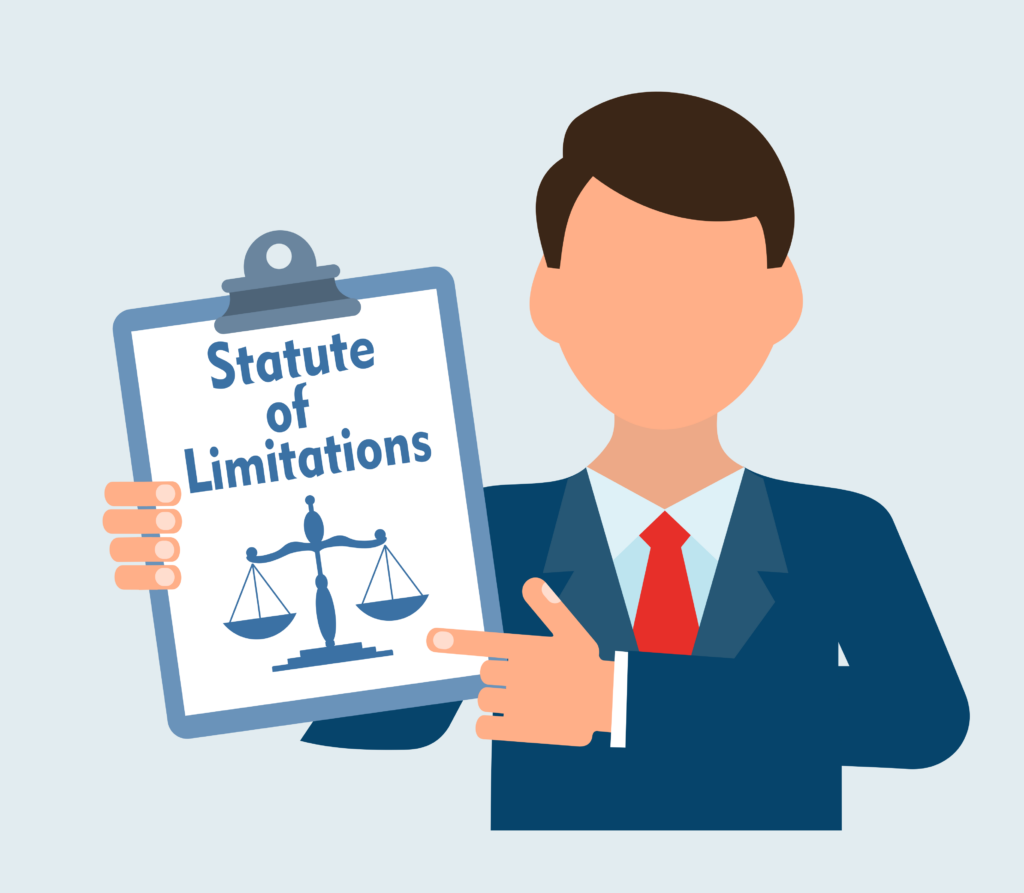Losing a loved one is always traumatic, but when their death happens due to someone else's negligence, the pain can be even more devastating. In these situations, family members may have the right to file a wrongful death lawsuit to seek compensation for their losses and hold the responsible parties accountable.
However, it's important to understand that there are time limits, known as statutes of limitations; laws govern when you can file a wrongful death claim. Due to these deadlines, never wait to consult a wrongful death lawyer in Lincoln about a possible case following a tragic loss of a loved one.
What is a Wrongful Death Statute of Limitations?
A statute of limitations is a law that sets a deadline for filing a legal claim. In the case of wrongful death, the statute of limitations determines how long family members have to file a lawsuit seeking compensation for their loved one's death.
The statute of limitations ensures prompt filing of legal claims, preserving evidence availability and fresh memories. It also provides a degree of certainty and finality for potential defendants, who can go on without the indefinite threat of legal action hanging over their heads.
It's important to note that statute limitations vary by state and the type of claim filed. In some states, the wrongful death statute of limitations may be as short as one year from the date of the person's death, while in others, it may be two years or longer.
Understanding Your State’s Wrongful Death Statute of Limitations

To determine how long you must file a wrongful death claim, you must look up your state's specific statute of limitations. You can typically find this information in your state's code of civil procedure or by consulting an experienced wrongful death attorney.
When researching your state's wrongful death statute of limitations, pay close attention to the following factors:
- The length of the statute of limitations: This is the most crucial information, as it will determine how long you have to file your claim. Ensure you understand exactly when the clock starts ticking (usually from the date of the person's death) and when the deadline expires.
- Any exceptions to the standard timeline: Some states have exceptions that can extend the statute of limitations in certain circumstances. For example, if the cause of death was not immediately apparent or if the responsible party fled the state, the timeline for filing a claim may undergo an extension.
- The specific requirements for filing a claim: In addition to the statute of limitations, there may be other requirements you need to meet to file a valid wrongful death claim. These can include providing notice to the responsible party or filing a claim with a specific court or agency.
It's important to remember that the courts strictly enforce statutes of limitations. If you miss the deadline for filing your claim, you may forfeit the opportunity to seek compensation, regardless of your strong case. That's why it's best to act quickly and consult with an attorney as soon as possible if you think you have a wrongful death claim.
Factors That Can Impact the Wrongful Death Statute of Limitations
While the statute of limitations provides a general timeline for filing a wrongful death claim, several factors can impact the specific deadline in your case.
Some of these include:
The Cause of Death
In wrongful death cases, the cause of a person's death can have a significant impact on the statute of limitations for filing a claim. While the general timeline for taking legal action typically centers around the date of the person's death, there are some situations where the clock may not start ticking until later.
One common example occurs when a loved one's death results from medical malpractice or exposure to a toxic substance. In these cases, the link between the negligent act and the person's death may not be immediately apparent. It can take time for family members to discover the true cause of death, particularly if the negligence occurred months or even years before the person passed away.
To account for these situations, many states have what's known as a "discovery rule" in their wrongful death statutes. Under this rule, the statute of limitations may extend to start from when someone reasonably discovers the cause of death rather than the actual death date.
For example, let's say that a loved one died due to complications from a medical procedure. At the time of their death, the family had no reason to suspect that negligence was involved. However, two years later, new information suggested that the doctor had made a critical error during the procedure. In this case, the discovery rule may allow the family to file a wrongful death claim within a certain period from the date they discovered the medical error, even if the standard statute of limitations based on the date of death has already expired.
It's important to note that the discovery rule does not apply in all cases and can vary by state. Some states may strictly interpret when someone should have found out the cause of death, while others may not have a discovery rule at all. That's why it's wise to consult with an experienced wrongful death attorney who can advise you on the specific rules and deadlines that apply to your case.
Shorter Statute of Limitations for Claims Against Government Entities

Another factor that can impact the wrongful death statute of limitations is the identity of the responsible party. In particular, if the person or entity responsible for your loved one's death is a government agency or employee, you may have a shorter timeline for filing a claim.
This is because many states have specific laws and procedures that govern legal action against government entities. These laws, known as sovereign immunity statutes, are designed to protect the government from frivolous lawsuits and to ensure that litigation does not unnecessarily drain public resources.
Under these statutes, individuals who wish to bring a claim against the government typically have a much shorter window to take action. While the standard wrongful death statute of limitations in a state may be two or three years, the deadline for filing a claim against a government entity may be as short as six months or one year.
In addition to the shorter statute of limitations, special notice requirements often must be met when bringing a claim against the government. This may involve submitting a formal notice of claim to the appropriate agency within a certain time frame, providing specific information about the incident and the damages sought.
If you fail to meet these notice requirements or file a claim within the shortened statute of limitations, the court may dismiss the case, even if it might have been a strong claim against a private party. That's why it's best to consult with an attorney as soon as possible if you believe that a government agency or employee may be responsible for your loved one's death. An experienced wrongful death attorney can support you with the deadlines in these cases and protect your rights.
Extended Statute of Limitations for Claims Involving Children or Elderly Individuals
In some states, the wrongful death statute of limitations may extend to claims involving children or elderly individuals. These cases often involve unique circumstances that can impact the timeline for discovering the cause of death or taking legal action.
For example, when a child dies due to negligence, the parents may be too overwhelmed with grief to consider the possibility of legal action right away. They may need time to process their loss and to investigate the circumstances surrounding their child's death. To account for this, some states have a longer statute of limitations for wrongful death claims involving minor children, allowing parents more time to seek justice on their child's behalf.
Similarly, when an elderly individual dies due to negligence or abuse in a nursing home or other care facility, it may take time for family members to discover the true cause of death. Sometimes, the facility may conceal evidence of wrongdoing or provide misleading information to the family. To address this, some states have a longer statute of limitations for wrongful death claims involving elderly individuals, particularly those who were under the care of a professional facility.
The extended statute of limitations for claims involving children or the elderly is not universal and can vary widely by state. Some states may have no special provisions for these cases, while others may have detailed rules and deadlines that apply to these situations.
If you have lost a child or elderly loved one and suspect negligence may have caused their death, consult with an attorney as soon as possible. An experienced wrongful death attorney can advise you on the specific rules and deadlines that apply to your case and show you your legal options for seeking justice on your loved one's behalf.
Cases Involving Out-of-State Defendants
A final factor that can impact the wrongful death statute of limitations is the location of the responsible party. If the person or entity responsible for your loved one's death resides outside of your state, it can create additional complexity and potentially impact the timeline for filing a claim.
In general, you must file wrongful death lawsuits in the state where the death occurred or where the responsible party resides. If the defendant resides in a different state from where your loved one died, you may need to file your lawsuit in the defendant's home state. This can be challenging, as different states have different laws and procedures governing wrongful death claims.

Additionally, the statute of limitations for wrongful death claims can vary by state. If you file your lawsuit in a state different from where your loved one died, you may be subject to that state's statute of limitations, which can be shorter or longer than the deadline in your state.
To further complicate matters, some states have what's known as a "borrowing statute," which requires courts to apply the shorter of the two states' statutes of limitations in cases involving out-of-state defendants. This means that even if your state has a longer deadline for filing a wrongful death claim, you may still be subject to the shorter deadline of the defendant's home state if you file your lawsuit there.
The Importance of Acting Quickly in Wrongful Death Cases
If you believe that someone else's negligence caused your loved one's death, it's time to act to protect your legal rights. In addition to the statute of limitations, there are several other reasons why prompt action is essential in wrongful death cases:
- Preserving evidence: Physical evidence can be lost or destroyed over time, and witnesses' memories can fade. By acting quickly, you can help ensure critical evidence preservation and interview witnesses while their recollections are fresh.
- Investigating the case: Wrongful death cases often require extensive investigation to determine the cause of death and identify the responsible parties. The sooner you begin this process, the more likely you can uncover the facts you need to build a strong case.
- Securing financial support: Losing a loved one can significantly impact a family, particularly if the deceased was a primary breadwinner. By filing a wrongful death claim promptly, you can secure the compensation you need to cover expenses such as funeral costs, lost income, and medical bills.
- Holding the responsible parties accountable: Filing a wrongful death lawsuit not only provides financial support for your family but also sends a message against negligent or wrongful conduct. By taking legal action, you can help prevent similar tragedies from happening to others in the future.
If you're considering filing a wrongful death claim, don't wait to take action. Contact an experienced attorney as soon as possible to discuss your case and learn more about your legal options.
What to Do If You Believe You Have a Wrongful Death Claim
If you suspect that someone else's negligence caused your loved one's death, there are several steps you should take to protect your legal rights and begin the process of seeking justice:
- Gather evidence: Begin collecting any evidence you have related to your loved one's death, including medical records, police reports, witness statements, and photographs of the scene of the incident.
- Keep track of expenses: Start keeping a record of any expenses related to your loved one's death, including funeral costs, medical bills, and lost income. This information will be important when it comes time to calculate your damages.
- Be cautious when communicating with insurance companies: If an insurance company representing the responsible party contacts you, exercise caution in your responses. Insurance adjusters may attempt to elicit statements that may later work against you. It's advisable to direct any inquiries to your attorney.
- Contact an experienced wrongful death lawyer: The most important step you can take is to contact an experienced wrongful death attorney as soon as possible. An attorney can review your case, advise you on the applicable statute of limitations and other deadlines, and guide you as you navigate the legal process.
When choosing a wrongful death attorney, look for someone with experience handling cases similar to yours and a track record of success. Schedule a consultation to discuss your case and understand the attorney's communication style and approach to representation.
Remember, the sooner you take action, the better your chances of securing the compensation and justice you deserve. Don't let the wrongful death statute of limitations expire before you have a chance to hold the responsible parties accountable.
Contact a Wrongful Death Lawyer

Losing a loved one is never easy, but when their death comes by way of someone else's negligence, it can be especially devastating. If you find yourself in this situation, it's essential to understand your legal rights and the deadlines for filing a wrongful death claim.
By familiarizing yourself with your state's wrongful death statute of limitations and consulting with an experienced attorney, you can make sure that you don't miss your opportunity to seek justice for your loved one.
If you have a wrongful death claim, don't hesitate to contact a qualified attorney for guidance. With the right legal representation, you can focus on grieving and healing while your attorney works to hold the responsible parties accountable and secure the compensation you deserve. Together, we can work to honor your loved one's memory and prevent similar tragedies from happening to others in the future.